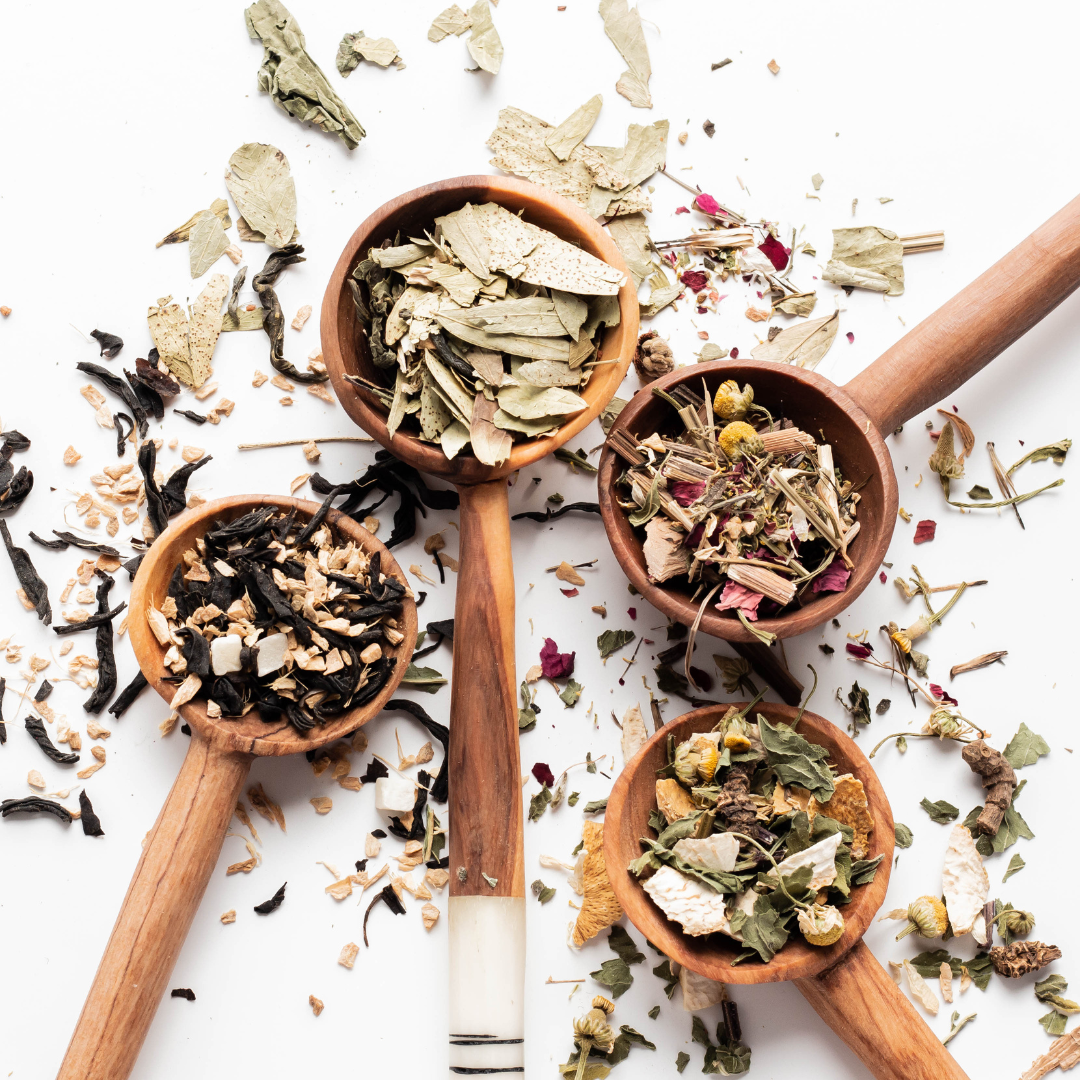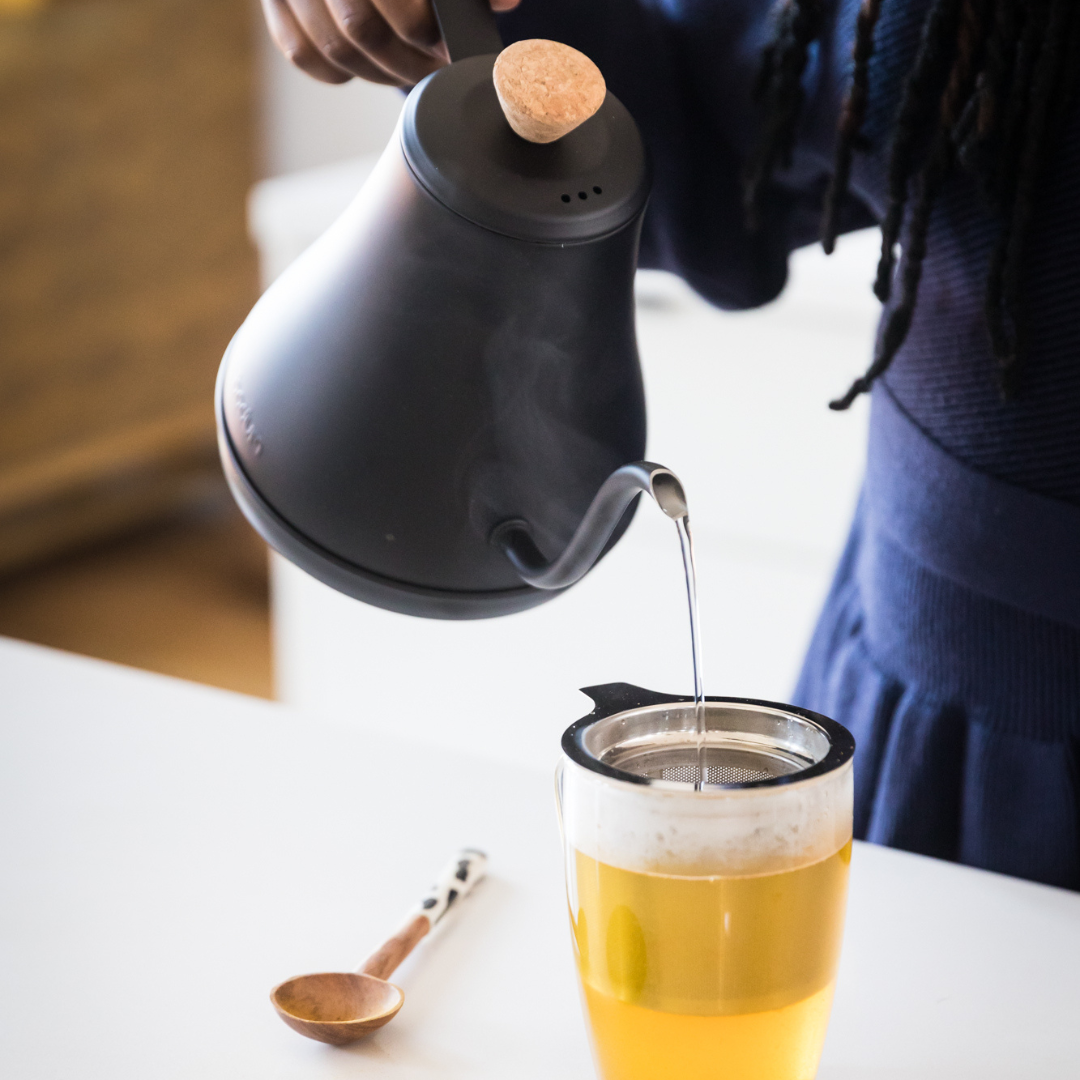‘TEA’ EXPLAINED.
From delicate white teas to robust black teas, from earthy pu-erh’s to soothing herbal infusions, the world of tea offers an exquisite array of choices, each unique in its character and essence.
Each type of tea bears its own story, its own origins, and its own distinct qualities, making it an intricate tapestry of flavors, suited for every palate and occasion.
Tea isn’t just a beverage; it is an art, an experience, and a timeless tradition that nurtures both body and mind.
White, black, and green tea come from the same plant, Camellia sinensis. The main difference lies in how they are processed.
-
White tea is the least processed of the three, with the leaves and buds being harvested while they are still young and covered in fine white hairs. This minimal processing gives white tea a delicate and subtle flavor.
Contains antioxidants
May aid in weight loss
Lowers risk of heart disease
Improves brain function
Promotes healthy skin
Boosts immune system
May lower risk of cancer
Reduces inflammation
Improves oral health
Enhances overall well-being
The Science:
White tea: Its history, composition, and potential effects on body weight management
10 Impressive Benefits of White Tea
-
Black tea undergoes a longer oxidation process. The leaves are fully fermented before being dried and processed. This results in a rich and robust flavor.
Contains powerful antioxidants
Contains polyphenols
May boost heart health
Help lower "bad" LDL cholesterol levels
Improve gut health
Aid in weight management
Improve mental alertness and cognitive function
Help regulate blood sugar levels
Provide a natural energy boost
Improve focus and concentration
Promote healthy digestion and relieve gastrointestinal discomfort
The Science:
10 Evidence-Based Health Benefits of Black Tea
Molecular Evidences of Health Benefits of Drinking Black Tea
-
Green tea is made from withered leaves and then quickly heated to prevent oxidation. This process helps to retain the natural green color and fresh taste of the tea.
Contains antioxidants
May help lower the risk of heart disease
Boost metabolism and aid in weight loss
Helps reduce anxiety and stress
Supports bone health
Boosts the immune system
Improve brain function, and enhance mental alertness and focus
May help inhibit the growth of certain types of cancer cells
Help regulate blood sugar levels and improve insulin sensitivity
Support gut health and relieve digestive symptoms.
The Science:
Beneficial Effects of Green Tea: A Literature Review
-
Oolong Tea Benefits
Boosts metabolism
Manages blood sugar levels
Improves brain function
Supports heart health
Enhances skin health
Pu-erh Tea Benefits
Aids in digestion
Reduces cholesterol levels
Supports weight loss:
Enhances mental clarity
Promotes gut health
Blue Tea Benefits:
Rich in antioxidants
Boosts immunity
Supports digestion
Promotes weight loss
Enhances skin health
Yellow Tea Benefits
Supports heart health
Boosts energy and alertness
Enhances mental well-being
Supports weight management
Promotes healthy skin
Functional teas provide specific health benefits as they are specifically formulated with a combination of herbs, spices, and other natural ingredients known for their therapeutic properties.
Tisanes, also known as herbal infusions, are beverages that steep herbs, flowers, fruits, or other botanical ingredients in hot water. They do not contain any tea leaves from the Camellia sinensis plant, making them caffeine-free.
Herbal teas, similar to tisanes, do not contain caffeine and are made from herbs and other botanicals.
SO, WHAT’S THE DIFFERENCE?
This list of herbs is not intended to self diagnose or prescribe but simply to increase your knowledge of the most novel use of plants and is not a substitute for professional, medical advice or treatment for specific medical conditions.
-
Peppermint: Helps soothe digestive discomfort and reduce bloating.
Ginger: Aids digestion, reduces nausea, and has anti-inflammatory properties.
Turmeric: Supports digestion, reduces inflammation, and promotes gut healing.
Fennel: Relieves digestive issues such as bloating, gas, and indigestion.
Chamomile: Calms the stomach, reduces inflammation, and aids in digestion.
Dandelion: Supports liver health, aids digestion, and acts as a gentle laxative.
Slippery Elm: Soothes inflamed gut lining, eases heartburn, and promotes healing.
Marshmallow Root: Forms a protective layer on the gut lining, reduces inflammation, and aids in healing.
Licorice Root: Supports healthy digestion, soothes the stomach, and reduces inflammation.
Lemon Balm: Alleviates digestive discomfort, reduces gas, and calms the stomach.
-
Black Cohosh: May help alleviate menopause symptoms like hot flashes and mood swings.
Fenugreek: Known to relieve PMS symptoms such as bloating and menstrual pain.
Maca: Believed to support hormone balance and reduce menopause symptoms.
Red Clover: May help reduce hot flashes and support bone health during menopause.
Vitex Berry: Known for its ability to regulate menstrual cycles and alleviate PMS symptoms.
Raspberry Leaf: Traditionally used to tone the uterus and relieve menstrual cramps.
Dong Quai: Often used to ease menstrual cramps, regulate periods, and support menopause.
Chaste Tree: May help balance hormones and reduce PMS symptoms like breast tenderness.
Evening Primrose: Believed to relieve PMS symptoms like breast pain and irritability.
Skullcap: Known for its calming properties, it may help reduce anxiety and stress during menopause and PMS.
-
Milk Thistle: Known for its liver-protective properties, milk thistle is often used to support liver detoxification.
Dandelion: Dandelion is believed to stimulate liver function and promote detoxification by increasing urine production.
Burdock Root: Burdock root is thought to help cleanse the blood and support liver function, aiding in detoxification.
Nettle: Nettle is believed to have diuretic properties, promoting urine production and aiding in detoxification.
Licorice Root: Licorice root is believed to support liver function and aid in detoxification by promoting the production of bile.
-
Echinacea: Known for its ability to stimulate the immune system and reduce the severity of cold symptoms.
Elderberry: Has antiviral properties and can help reduce the duration and severity of cold and flu symptoms.
Astragalus: Supports immune function and helps protect against respiratory infections.
Ginseng: Boosts the immune system, improves stamina, and enhances overall well-being.
Reishi Mushroom: Known for its immune-boosting properties and ability to reduce inflammation.
Licorice Root: Supports the immune system, reduces inflammation, and soothes respiratory infections.
Lemon Balm: Has antiviral properties and can help relieve symptoms of cold sores and other viral infections.
Olive Leaf: Contains compounds that support immune function and have antimicrobial properties.
-
Turmeric: Contains curcumin, which has been shown to reduce inflammation and pain.
Ginger: Contains gingerols, which have anti-inflammatory effects and may help reduce muscle pain and soreness.
Boswellia: Contains boswellic acids, which have been shown to reduce inflammation and may help with joint pain.
Rosemary: Contains rosmarinic acid, which has anti-inflammatory effects and may help with conditions such as arthritis.
Holy basil: Contains eugenol, which has anti-inflammatory effects and may help reduce joint pain and stiffness.
Devil's claw: Contains harpagosides, which have anti-inflammatory effects and may help with conditions such as osteoarthritis.
Cat's claw: Contains compounds that have anti-inflammatory and antioxidant effects and may help reduce joint pain and swelling.
Willow Bark: Contains salicin, a compound similar to aspirin, which may help reduce joint pain and inflammation.
Nettle: Known for its anti-inflammatory properties, nettle may help relieve symptoms of arthritis.
White Willow: Similar to willow bark, white willow contains salicin and may provide relief from joint pain. .
Yucca: Often used in traditional medicine, yucca may help alleviate symptoms of arthritis and joint pain.
-
St. John's Wort: Known for its potential benefits in managing mild to moderate depression.
Rhodiola: Often used to reduce stress and enhance mood.
Chamomile: Known for its calming effects and potential to reduce anxiety symptoms.
Lavender: Has been shown to relieve mild forms of neurological anxiety.
Hops: Traditionally used to promote relaxation and relieve anxiety.
Maypop: May help relieve anxiety and stress.
Lemon Balm: May have a calming effect and help reduce anxiety symptoms.
Valerian: Often used as a natural sleep aid and may help reduce anxiety.
Ashwagandha: Known for its stress-reducing properties and potential to alleviate anxiety.
Passionflower: Traditionally used to reduce anxiety and promote relaxation.
-
Ashwagandha: Helps improve testosterone levels, reduce stress, and enhance fertility.
Saw Palmetto: Supports prostate health and treats urinary symptoms related to an enlarged prostate.
Tribulus Terrestris: Boosts testosterone production, enhances libido, and improves muscle strength.
Ginseng: Increases energy levels, improves cognitive function, and enhances sexual performance.
Horny Goat Weed: Enhances libido and sexual function by increasing blood flow to the genital area.
Maca Root: Improves energy levels, boosts stamina, and enhances fertility.
Stinging Nettle: Supports prostate health, improves urinary flow, and reduces inflammation.
Fenugreek: Increases testosterone levels, improves libido, and enhances athletic performance.
Ginkgo Biloba: Enhances blood circulation, improves memory, and supports cognitive function.
Yohimbe: Boosts libido, improves erectile dysfunction, and increases sexual performance.
-
Hair, Skin, and Nails
Horsetail: Strengthens brittle nails and promote hair growth.
Alfalfa: Packed with nutrients like biotin and iron to support hair and nail health.
Burdock: Improves the condition of the skin, hair, and nails due to its antioxidant properties.
Rosemary: Boosts scalp health.
Aloe vera: Known for its soothing properties and helps improve skin health and promote hair growth.
Eye health
Eyebright: Helps relieve eye strain, reduce inflammation, and promote healthy vision.
Bilberry: Supports eye health, improves night vision, and helps reduce the risk of cataracts and macular degeneration.
Calendula: Soothe irritated eyes and reduce eye puffiness.
Fennel: Alleviate dry eyes and reduce eye strain caused by extensive computer use.
Rooibos: Helps protect the eyes from oxidative stress and supports overall eye health.
Brain health
Ginkgo Biloba: Enhances cognitive function, improves memory and concentration, and supports overall brain health.
Gotu Kola: Improves mental clarity, memory, and focus. It also helps reduce anxiety and stress.
Holy Basil: Helps combat stress and promote mental well-being. It also improves memory and cognitive function.
Sage: Used to enhance memory and concentration. It also has antioxidant properties that protect brain cells from damage.
Lemon Balm: Promotes relaxation, reduces anxiety and stress, and improves cognitive function and memory retention.
Allergies
Peppermint: Helps with nasal congestion and soothe irritated airways, providing relief from allergy symptoms.
Chamomile: Aid to reduce allergic reactions, such as itchy eyes and skin.
Nettle: Acts as a natural antihistamine, helping to alleviate allergy symptoms like sneezing, itching, and congestion.
Eucalyptus: Helps open up blocked airways and relieve respiratory congestion caused by allergies.
Rooibos: Contains quercetin, a natural antihistamine that can reduce allergy symptoms like sneezing, runny nose, and watery eyes.


